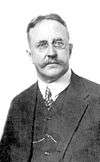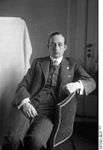1930 Austrian legislative election
Parliamentary elections were held in Austria on 9 November 1930.[1] The Social Democratic Party emerged as the largest faction in the National Council, with 72 of the 165 seats. Voter turnout was 90.2%.[2]
| |||||||||||||||||||||||||||||||||||||||||||||||||||||||||||||||||
165 seats in the National Council of Austria 83 seats needed for a majority | |||||||||||||||||||||||||||||||||||||||||||||||||||||||||||||||||
|---|---|---|---|---|---|---|---|---|---|---|---|---|---|---|---|---|---|---|---|---|---|---|---|---|---|---|---|---|---|---|---|---|---|---|---|---|---|---|---|---|---|---|---|---|---|---|---|---|---|---|---|---|---|---|---|---|---|---|---|---|---|---|---|---|---|
| |||||||||||||||||||||||||||||||||||||||||||||||||||||||||||||||||
| |||||||||||||||||||||||||||||||||||||||||||||||||||||||||||||||||
| This article is part of a series on the |
| Politics of Austria |
|---|
 |
|
|
|
|
|
|
|
This was the last parliamentary election to take place in the period of the First Austrian Republic. A series of communist-Nazi clashes in 1934 was followed by the authoritarian Federal State of Austria and eventual Anschluss in 1938 with Nazi Germany.
Results
| Party | Votes | % | Seats | +/- |
|---|---|---|---|---|
| Social Democratic Party | 1,517,146 | 41.1 | 72 | +1 |
| Christian Social Party | 1,314,956 | 35.7 | 66 | – |
| National Economy Bloc[a] | 428,255 | 11.6 | 19 | – |
| Homeland Bloc | 227,401 | 6.2 | 8 | New |
| German National Socialist Workers' Party | 111,627 | 3.0 | 0 | 0 |
| Landbund for Austria | 43,689 | 1.2 | 0 | – |
| Communist Party of Austria | 20,951 | 0.6 | 0 | 0 |
| Austrian People's Party | 14,980 | 0.4 | 0 | New |
| Democratic Centre Party | 6,719 | 0.2 | 0 | New |
| Jewish List | 2,133 | 0.1 | 0 | New |
| Kaiser Loyalty People's Party | 157 | 0.0 | 0 | New |
| National Democratic Association | 54 | 0.0 | 0 | New |
| Invalid/blank votes | 28,098 | – | – | – |
| Total | 3,716,166 | 100 | 165 | 0 |
| Source: Nohlen & Stöver | ||||
a The National Economic Bloc was an alliance of the Greater German People's Party and the Landbund
gollark: They're displaying fine.
gollark: Where?
gollark: I tried looking into it but really I can only trace it to, seemingly, a firefox HTTP/2 bug.
gollark: Comments are functional. Incdec is broken in Firefox for unfathomable reasons.
gollark: Also, do you have a *not*bugreport, or just a bugreport prefixed with an !?
References
- Nohlen, Dieter; Stöver, Philip (31 May 2010). Elections in Europe: A data handbook. Nomos Verlagsgesellschaft. p. 196. ISBN 978-3-8329-5609-7.
- Nohlen & Stöver, p213
This article is issued from Wikipedia. The text is licensed under Creative Commons - Attribution - Sharealike. Additional terms may apply for the media files.
_1919_WIZ_C._Pietzner.png)



